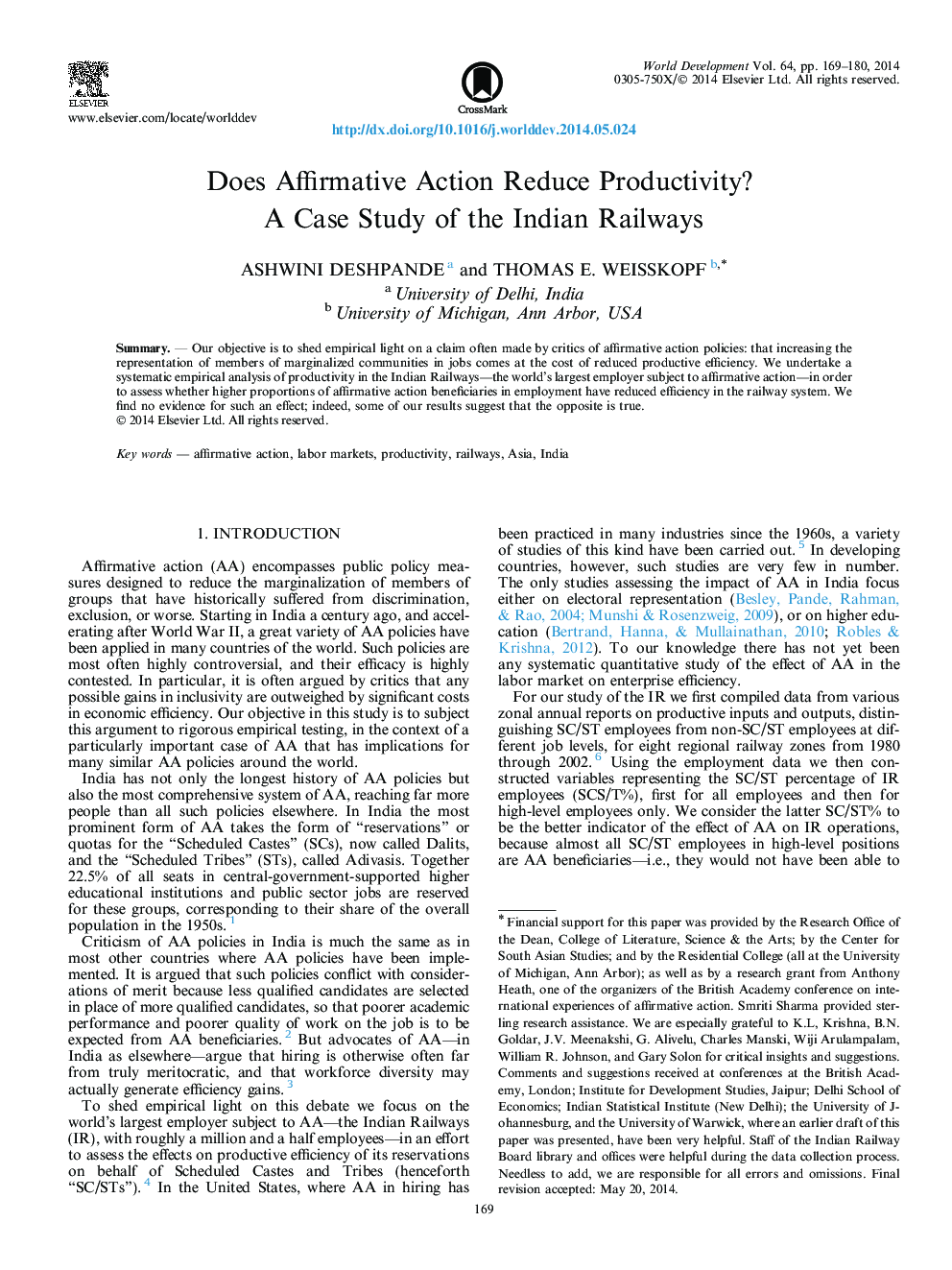| Article ID | Journal | Published Year | Pages | File Type |
|---|---|---|---|---|
| 7394611 | World Development | 2014 | 12 Pages |
Abstract
Our objective is to shed empirical light on a claim often made by critics of affirmative action policies: that increasing the representation of members of marginalized communities in jobs comes at the cost of reduced productive efficiency. We undertake a systematic empirical analysis of productivity in the Indian Railways-the world's largest employer subject to affirmative action-in order to assess whether higher proportions of affirmative action beneficiaries in employment have reduced efficiency in the railway system. We find no evidence for such an effect; indeed, some of our results suggest that the opposite is true.
Related Topics
Social Sciences and Humanities
Economics, Econometrics and Finance
Economics and Econometrics
Authors
Ashwini Deshpande, Thomas E. Weisskopf,
